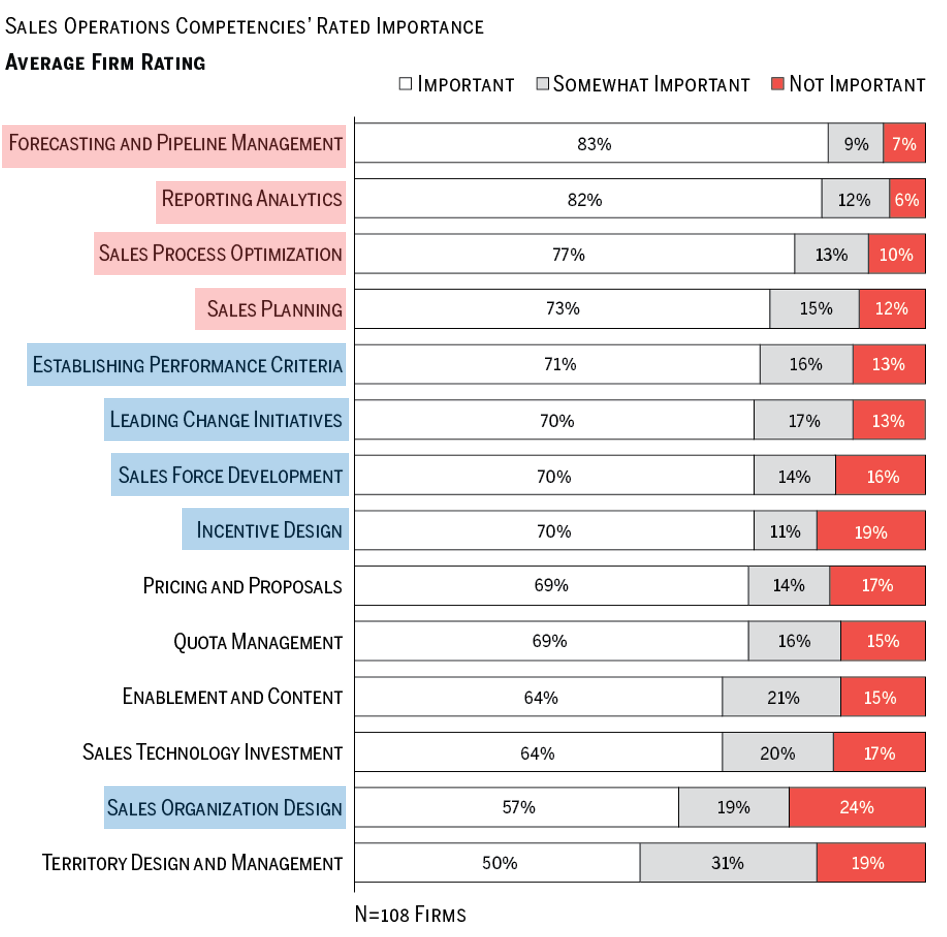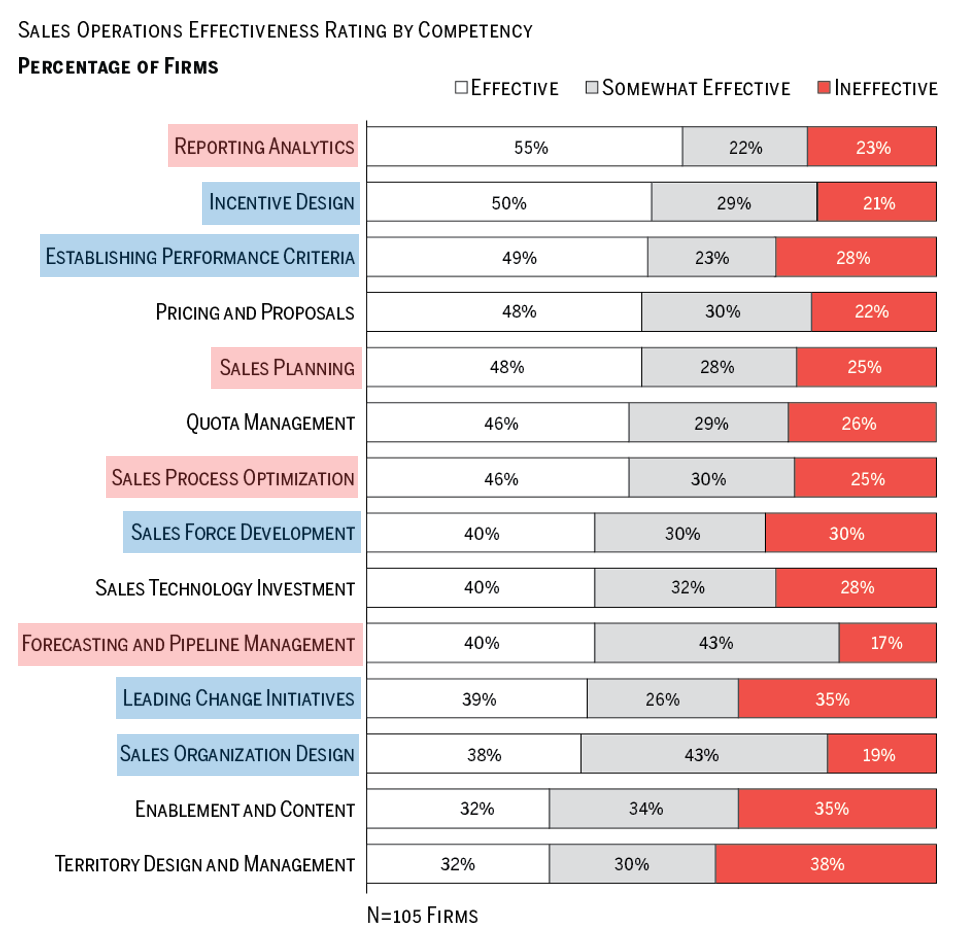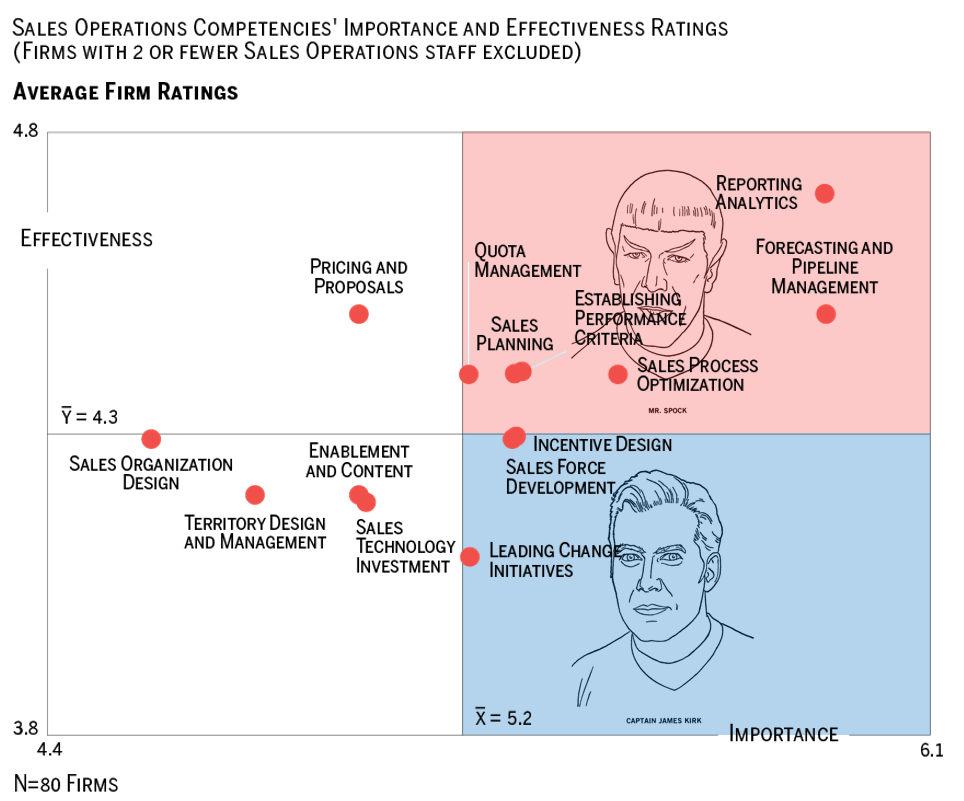Which competencies are the most important for sales operations? Our recent research posed this question to our members, more than 100 of whom offered insights into 14 core sales ops competencies as they’re valued and practiced in their respective organizations.

Sales ops’ role in the firm is sometimes the analytical and rational foil to sales leadership’s more instinctive leadership style. In this sense, sales ops is the Mr. Spock to sales leadership’s Captain Kirk. While Kirk is charismatic, emotional, and adaptable, Spock is calculating, logical, at times rational to a fault.
Unsurprisingly, skills like forecasting and reporting analytics are considered more important than Kirk-like competencies like leading change initiatives. (These Kirk-like skills have blue labels, while the Spock-like have red labels). Though, notably, all of the fourteen competencies are rated important by at least half the firms surveyed1.
But it would be a mistake to suggest that sales ops should stick to analysis. While it often provides the analytics behind many decisions, it also directs and supports strategy, usually as the sales organization’s de facto strategy officer. So while Spock-like competencies may rate as most important, those Kirk-like competencies, however subordinate in importance, are still quite important. This explains why sales ops is uniquely difficult to staff. Managers combining both strategic and analytical qualities, with an appreciation for the sales environment, are not easy to come by.

No surprise, then, that only two competencies among the 14 are effectively demonstrated by a majority of respondents’ sales operations departments (reporting analytics and incentive design, competencies we assigned to Spock and Kirk, respectively)2. Among the worst performing are two crucial (and Kirk-esque) competencies: leading organizational change and sales organization design; just 39% and 38%, respectively, of firms’ sales operations functions consider themselves capable.
Given the daunting breadth of competencies required by sales ops’ competency requirements and many firms’ apparent effectiveness gaps, a question worth asking is: Where should sales ops focus its competency improvement efforts?

Our research isolates three. These rank in the top half of all competencies’ importance ratings, and in the bottom half of all competencies for effectiveness. They could therefore be considered our research sample’s most important improvement priorities. These competencies are incentive design, leading change initiatives, and sales force development. Each are complex, Kirk-like strategic competencies. One of these, leading change initiatives, is also considered the most difficult competency (together with sales process optimization) to develop internally.
We also found something in the data that broadly argues for investing in sales ops’ strategic focus. Firms where sales ops is sufficiently strategically focused (just 30% of firms) outperform those where sales ops is only tactically focused by 18% in firm sales objective achievement. Which is a pretty big Vulcan deal, whether your ears are pointy or not.
You can learn more about our sales operations research here. Full members can access the report and companion exhibits, as well as the original webcast that introduced the Kirk and Spock analogy.
Footnotes
1 On a scale of 1 to 7, with one 1 being not important at all, 4 being somewhat important, and 7 being very important, a minimum of 50% of the firms rated all competencies 5 or higher.
2 On a scale of 1 to 7, with one 1 being not effective at all, 4 being somewhat effective, and 7 being very effective, a minimum of 50% of the firms rated two competencies 5 or higher.









